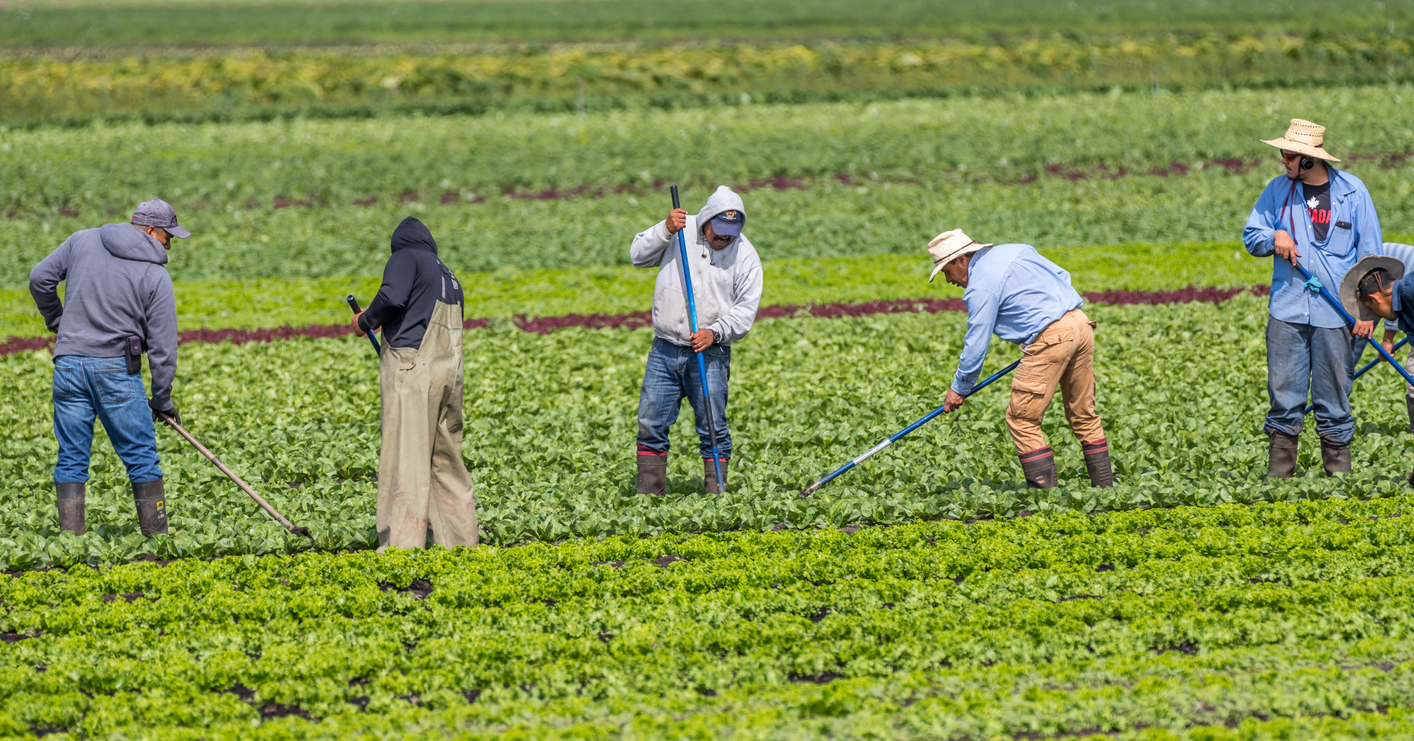The recent focus on illegal immigrants in the U.S. has highlighted the ubiquity of their presence in agriculture. As protests rage all over the country, farmers and ranchers juggle the realities of employees not showing up for work out of fear while trying to get crops grown and livestock cared for.
According to most recent data, 44 percent of farmworkers in the U.S. are here illegally. However, it is hard to know with certainty how accurate that percentage is with some estimates hovering around 50 percent and others as high as 75 percent. The U.S. National Agricultural Worker Survey (NAWS) 2021-2022 noted 58 percent of farmworkers had some form of legal work authorization but only 38 percent of those workers were U.S. citizens.
These data explain the continued reliance on the H-2A foreign worker visa program. The program, which requires U.S. agricultural employers to prove a labor need locally before hiring foreign-born workers and providing them with a temporary work visa, has ballooned over the last decade. So far, Washington has had more than 15,000 visas certified for the first two quarters of the year. More than 232,000 applications have been received for H-2A certifications nationwide.
The current unemployment rate in the United States is holding steady at 4.2 percent, or about 7.2 million people. According to estimates, there are about 11 million illegal immigrants living in the U.S. and it is estimated about 8.3 million of those are working. That number is also a “best guess” based on people willing to risk identifying themselves in a survey.
For the sake of argument, if every undocumented working person in the U.S. were deported and every unemployed person were able to take their respective place in the jobs that were vacated by those undocumented people, there would still be approximately 1.1 million jobs vacant. But herein lies the problem: undocumented workers often take jobs U.S. citizens are less likely to take; jobs in landscaping, agriculture, and hospitality. The combination of relatively low pay scale and difficult work environments are often shunned by American workers, according to employers. This claim is borne out by the current labor shortage identified in agriculture and confirmed by the number of H-2A applications filed thus far this year.
This year is already economically difficult for farms in the U.S. Raids by ICE have reportedly made farmworkers fearful of showing up for work, putting additional pressure on farms during harvests. This pressure, in turn, translates into less local food being available, putting pressure on shoppers through increased food costs.
President Trump appears to understand these challenges. Addressing the immigration issue, he recently noted, “we can't put the farms out of business ... I never want to hurt our farmers. And we can't hurt the people who are not criminals.”
A compromise needs to be reached that allows for long-time undocumented workers to be recognized for their contributions to both the labor force and U.S. culture. Simply rounding people up, noting they do not have proper documentation to work in the U.S., and either deporting them or sending them through a lengthy court proceeding, does not leave room for any kind of context into who these individuals are.
Legislation in Congress has attempted to address this issue through the Farm Workforce Modernization Act. The bill, which passed the House in both 2023 and 2024, attempts to address reforms needed to both the domestic and H-2A labor pools. The bill focuses on the most pressing issues in immigration and farmworker labor reform, working to make documentation, access to visas, wages, housing, and certification of workers all more reasonable for workers and their employers.
Rather than creating a regime of fear that discourages existing farmworkers who are in the U.S. illegally to lurk along the margins of society, we should find ways to welcome those who have meaningfully contributed to the U.S. with their hard work in our fields, restaurants, and hotels. There is a difference between a hardened criminal and a farmworker showing up each day to pick berries or cut asparagus, we should demand discernment in knowing the difference in the enforcement of our immigration policies.






